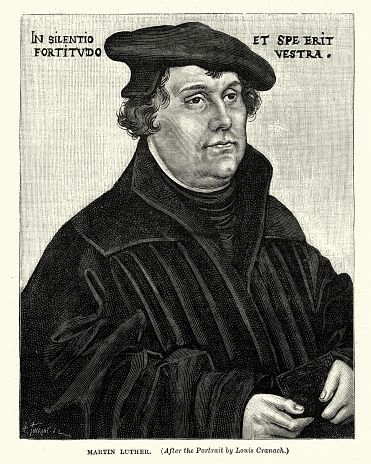A defining principle of this website is its commitment to free speech. In relation to anti-Semitism that means upholding the principle that it should be challenged rather than proscribed as a form of “hate speech”.
Attempts to cancel anti-Semitism only undermines the struggle to combat it effectively. It simply takes more convoluted and covert forms.
Last month a peculiar example of this “cancel culture” in relation to anti-Semitism emerged in Germany. The state of Berlin’s anti-Semitism commissioner, Samual Salzborn, submitted a dossier on 290 of the German capital’s street names arguing that many were named after anti-Semites. These included Martin Luther (a key figure in the emergence of the Protestant church in the sixteenth century), Richard Wagner (a nineteenth century composer known particularly for his operas) and the Brothers Grimm (collectors of German folklore in the nineteenth century). Konrad Adenauer (the first chancellor of Germany’s post-War Federal Republic), and Thomas Mann (winner of the Nobel prize for literature in 1929) were deemed worthy of further research and digital contextualisation.
The author of the study, political scientist Felix Sassmannshausen, recommended that in 101 cases street names be either renamed or the subject of further research. Although the document has no binding legal force the anti-Semitism commissioner reportedly stated that the goal was to open up a public debate on the subject.
A debate would be welcome but in my view it would be a grave mistake to try to remove these figures from the public realm.
That is despite the fact that in some cases, perhaps most notably Luther, it is widely known that they made grossly anti-Semitic statements. For example, his work The Jews and Their Lies is notoriously full of vile anti-Semitic statements. In relation to other historical figures, such as Adenauer, the charge is more controversial. He was included in the recent dossier because he allegedly allowed former Nazi functionaries into this government.
Let’s put Adenauer aside for the time being and focus on Luther as the most blatant example. There is no doubt that he played a key role in the emergence of Protestantism. This in turn arguably helped provide the basis for the emergence of the conception of individual conscience. Although Luther was no lover of freedom he inadvertently opened the way for individual rights by putting the believer above earthly authority.
The point here is not that Luther should be beyond criticism but that any assessment of his legacy should be balanced. His immense historical importance and his negative points should both be recognised. And it should not be forgotten that he lived 500 years ago, when social values were clearly hugely different. His cause perfectly illustrates the complexity of many of these questions.
The problem with renaming streets named after him is that it is essentially a form of cancellation. Rather than engage with his legacy, both good and bad, it would encourage his removal from public view.
And once this dynamic gets underway it is hard to stop. Should Wagner’s operas be banned? Or what about the Grimm children’s stories? These included grossly anti-Semitic tales but also Cinderella, Little Red Riding Hood and Snow White. Are these tales guilty of anti-Semitism by association?
It is better to tackle awkward historical legacies than try to hide them. We need more knowledge of history rather than less.
*A hat tip to cancelcuture.de for the link to the original Welt report on this story.

